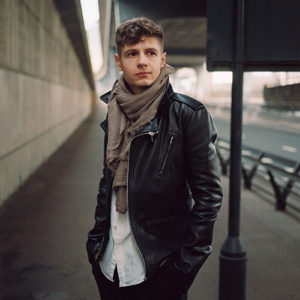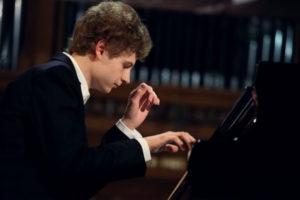Born in Siberia, young Russian pianist Pavel Kolesnikov – now based in London – is wowing audiences all over the world with his blend of effortless technique and unique musical voice. I talk to him ahead of his upcoming concerts in Hong Kong this February.
What made you move to London to study?
I wanted to try a different approach. In Moscow I was studying the Russian school at its best, and I simply thought that I shouldn’t limit myself to that, however great it is.
What were the main differences you encountered?
It’s a completely different approach to everything, which in many ways conflicted with what I was told, so I had to change many things. I’ve always liked breaking my habits – it can be very useful.
Do you still find yourself questioning and breaking habits?
Yes, that’s an everyday thing. I think for every musician it’s an everyday job, to break the habits that we build up. We repeat things, we have to perfect certain things, but as you do it you end up with certain patterns of doing things. At the same time, what we do on stage should always remain completely fresh, and that’s why you should always question if what you’re doing is real, or just something you’ve done before.

Pavel Kolesnikov
© Eva Vermandel
How do you find the balance between perfecting something and keeping it fresh?
I think it’s a question of scheduling and planning, of how much you play a piece, and when. If I do a lot of Beethoven in one season I won’t do a lot in the next season, to put it simply. I’ll try and go in a completely different direction. It can be quite hard because people want you to play certain things, and they want to hear what you’ve just recorded.
There’s also a lot of different repertoire in that sense. Some repertoire allows you to dig deeply and still maintain freshness. Beethoven and Schubert are particularly good for this, but some composers like Chopin are different because you can end up falling into clichés very quickly. And also it’s important to take holidays away from the piano! It’s one of the most amazingly refreshing things a musician can do.
Chopin: Piano Sonata No. 3 in B Minor, Op. 58 – I. Allegro maestoso
Were you always encouraged to ask these questions?
Not many people understand that they even have to question things. Most of the education in classical music is done in a very authoritarian way. Of course there’s a reason – it’s a tough profession and the teaching has to be very strong – but it’s also done in such a way that people don’t understand that they have to reinvent themselves. Not many teachers are able to allow that.
Did your teachers allow that?
Yes, but I was also always carving that space for myself. It’s dangerous to try to please just one person. You have to understand from the very beginning that there are no similar opinions on the same subject. Everyone has their own opinion, and very often it’s not the matter of ‘right’ or ‘wrong’ – it’s what suits you the best and sparks your imagination.
Is that advice you would pass on to younger musicians?
Yes, I think that people should always widen their horizons.

© pavelkolesnikov.files.wordpress.com
Do you widen your horizons away from the piano as well?
Many musicians, in particular young musicians, don’t understand that what we’re doing is not about notes. It’s essentially about anything else but notes, in most cases. It’s difficult to put a finger on it, but the more experience you have in life, the more chance you have of being a good musician, an interesting musician – you give your music an opportunity to have more meaning and originality. Of course there’s an opposite danger, as with everything, but that’s commonplace.
What do you do away from the piano?
I guess I have all the normal hobbies. I love seeing live performance, and this is also something I think is extremely important, and something that people are doing less and less. I find this extremely inspiring, and very useful. A live performance – whether it’s a good one or a bad one – is the best lesson you can get. I am very into fashion and art, particularly painting and photography, and I also collect perfumes.
How big is your collection?
I try to keep it sane… I have about 150 bottles, some very old. I liked smells as a child – I always wanted to smell the leaves, the woods, the berries, everything. As I discovered perfume I discovered what a mysterious art it is, very similar to music because they’re both non-visual arts. They deal with abstraction, an abstraction somehow against our will or against our thinking – it builds up its own vocabulary and is very powerful at transferring emotions. For me, the two arts inform each other.
And it’s useful for work too; perfumery operates with chords and harmonies, and it helps me to understand things. It’s difficult to explain, but you have these analogies in your mind and sometimes they connect.
Pavel performs Chopin’s Second Piano Concerto with the Hong Kong Sinfonietta on 8 February, and a solo recital featuring Chopin, Debussy, Schumann and Beethoven on 10 February.




